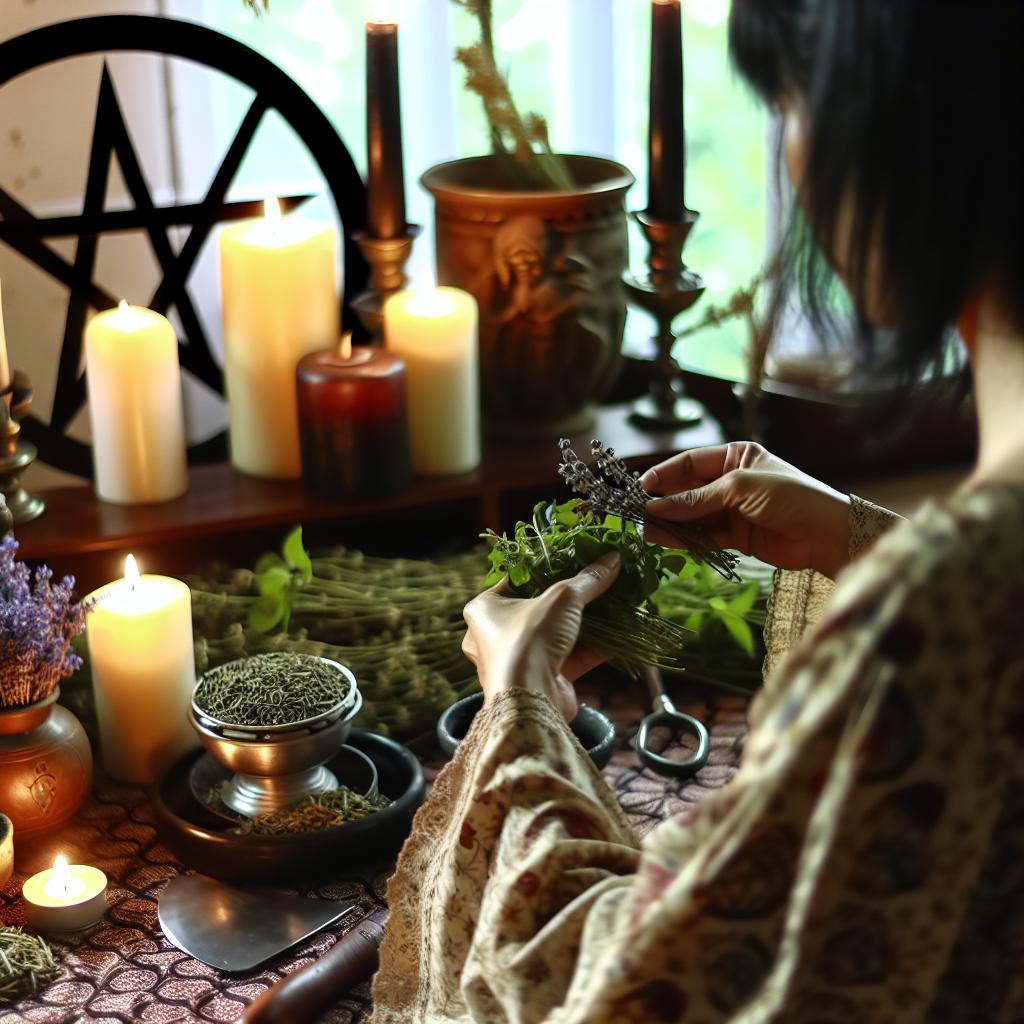
The Role of Herbs in Wiccan Rituals
Wiccan practices emphasize a harmonious and respectful relationship with nature, and herbs naturally find a significant place within these practices. Through historical use and the energies they embody, herbs are often integrated into numerous rituals and spells. Wiccans view these plants as both practical and mystical tools to enhance spiritual activities and deepen connections with the natural world. Although each herb serves multiple purposes, their value within Wiccan practices lies as much in their symbolic meanings as in any physical attributes.
Historical Context of Herbal Use in Wicca
The use of herbs for spiritual and practical applications is a practice steeped in antiquity, often preceding many contemporary scientific fields. Within the realm of Wiccan traditions, the reliance on herbs encompasses both their healing attributes and their symbolic energies. From antiquity, it has been a commonly held belief that plants possess unique energies or spirits. In Wiccan practices, this translates into a practice of venerating and carefully harvesting these herbs, imbuing the process with a sense of gratitude and respect. Such perspectives toward plant life reflect a broader philosophy that sees nature as a living, breathing entity, filled with divine essence.
Commonly Used Herbs
The selection of herbs used in Wiccan rituals is guided by the desired outcomes and the symbolic meanings associated with each plant. Sage, lavender, and rosemary are among the most frequently employed due to their varied but complementary properties.
Sage, with its rich history of use in purification rituals, is believed to cleanse spaces of negative energies, making it a staple in many cleansing ceremonies. Its smoke is thought to wash away negative vibrations and elevate spiritual awareness.
Lavender is treasured for its calming and soothing qualities, often used in spells centered on peace, tranquility, and restful sleep. Its gentle energy harmonizes with rituals aimed at easing stress and promoting inner calm.
Rosemary is traditionally linked to protection and memory. It is a favorite for rituals seeking to safeguard individuals or spaces and for reinforcing memory and concentration. Additionally, rosemary is sometimes used in rites aimed at evoking ancestors or the spirit realm, due to its association with remembrance.
Methods of Use in Rituals
The versatility of herbs allows them to be utilized in various forms within Wiccan rituals. The method of use often depends on the intended purpose of the ritual and the specific properties of the herbs involved:
One common practice is using herbs as incense. This involves burning specific herbs to invoke targeted energies or for the spiritual cleansing of a ritual space. The aroma disseminates the properties of the herbs throughout the environment, enriching the ceremonial atmosphere.
Tinctures and oils made from herbs are another popular form of utilization. These concentrated extracts are applied to objects or individuals to amplify the energy of a ritual. Anointing can be seen as a way to infuse physical objects with the desired spiritual properties of the herbs.
Herbs are also fashioned into sachets and amulets. These small, portable items are either carried or worn, allowing the individual to consistently engage with the herbs’ spiritual energies. Sachets can be placed under pillows for peaceful sleep, while amulets can offer ongoing protection to the wearer.
Ethical and Sustainable Practice
The principles of sustainability and ethical sourcing are increasingly emphasized among many practitioners. The drive towards ensuring the responsible use of herbs is not only about preserving these valuable plants but is also aligned with the broader Wiccan ethos of reverence for nature. Growing one’s herbs allows for complete control over the cultivation process, supporting ethical practices. When not possible, seeking herbs from reputable sources that prioritize sustainability and fair trade ensures that ecological and social conscience are maintained.
Expanding Your Herbal Knowledge
For those intrigued by the role of herbs in Wiccan practices, a multitude of resources provide in-depth information to effectively expand your understanding and practice. Embracing comprehensive texts and partaking in online courses tailored to the subject can richly enhance one’s knowledge. Additionally, engaging with a network of fellow practitioners fosters an enriching exchange of ideas and experiences. Delving into these educational opportunities allows for a more profound insight into the mystical and practical dimensions of herbs.
Should one be interested in further exploring this vast topic, resources such as wicca.com offer extensive coverage on the usage of herbs within rituals, shedding light on both traditional and contemporary practices.
